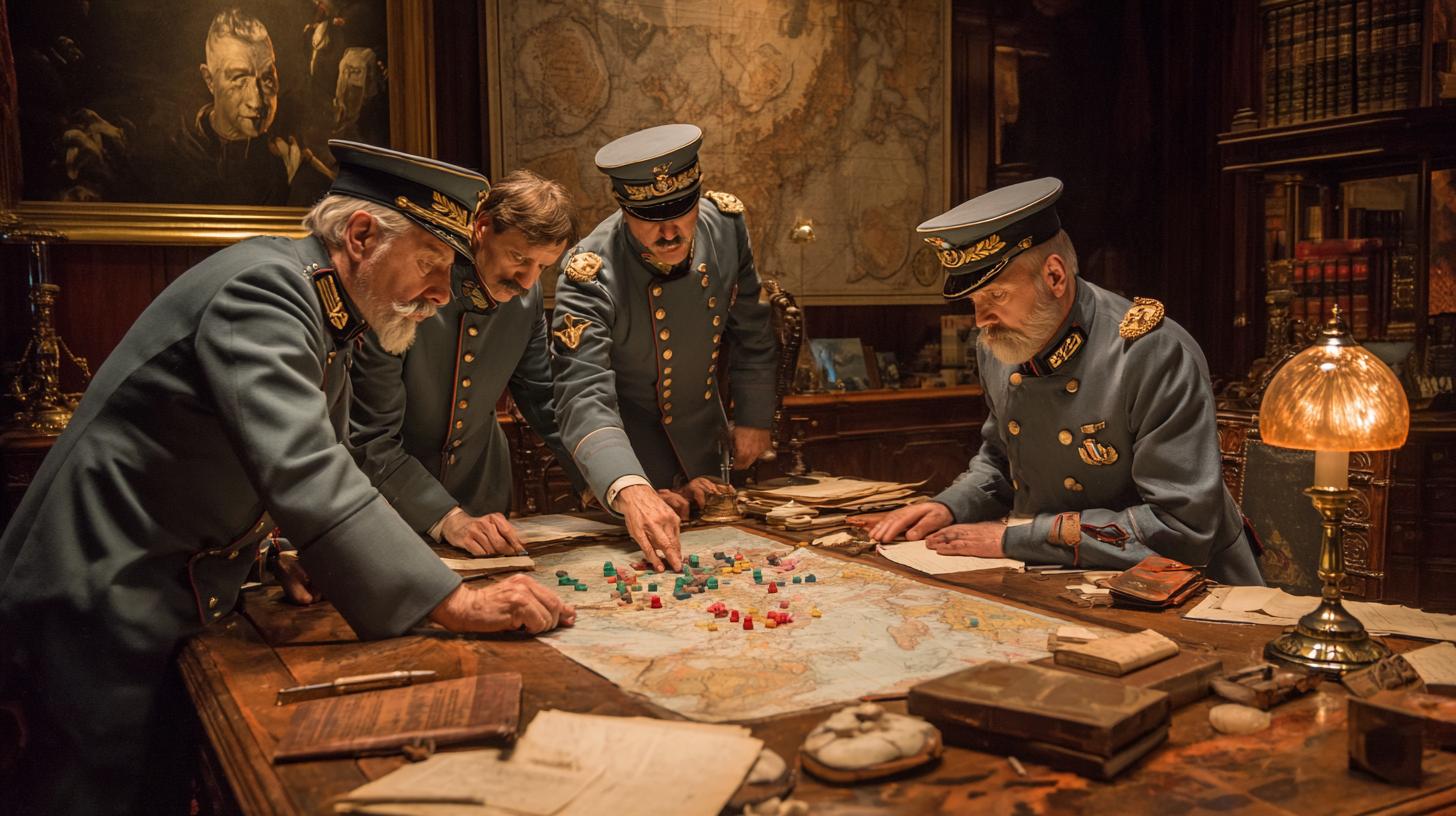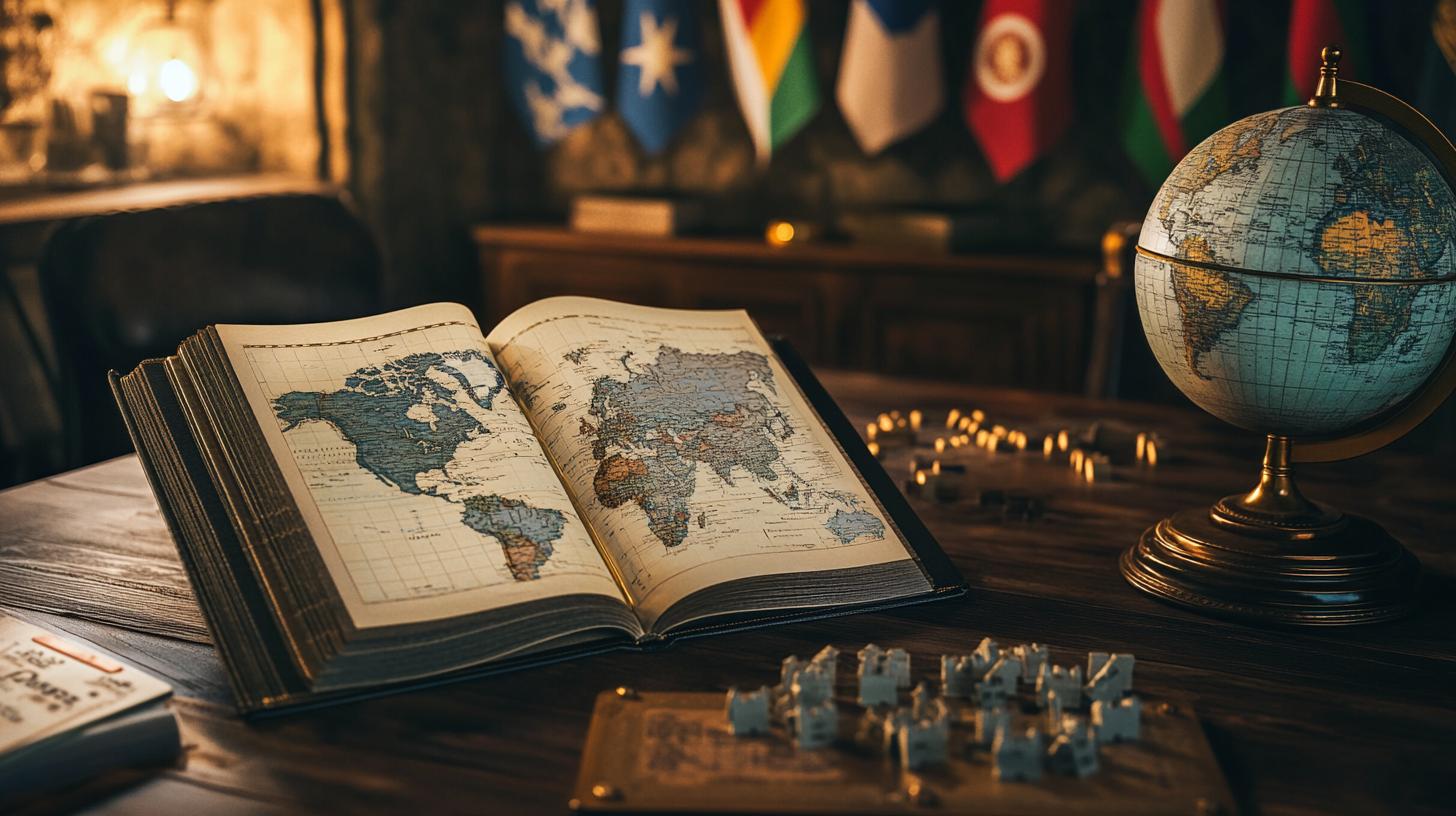Mastering the Art of Diplomacy: How to Play as Germany in Diplomacy
Stepping into the heart of Europe, Germany holds a pivotal role in Diplomacy’s intricate balance of power. Learning how to play as Germany in Diplomacy demands both tactical foresight and diplomatic finesse—after all, you’re sandwiched between France to the west, Russia to the east, and Britain’s naval ambitions to the north. With the right blend of alliances, timely betrayals, and steady expansion, Germany can emerge as an unstoppable force. In this guide, we’ll walk through everything from opening moves to long-term strategy, ensuring you dominate the board and earn respect among seasoned diplomats. Whether you’re a newcomer or a veteran seeking fresh insights, get ready to transform your gameplay and claim the Rhine!
Why Germany Holds a Unique Position
Germany starts in the center of the map, granting access to seven adjacent provinces. This centrality offers opportunity—and risk. Early missteps can leave you encircled, but savvy players leverage Germany’s flexibility to pivot fluidly between eastern and western theaters. Understanding this dual potential is the first step in mastering how to play as Germany in Diplomacy. Your ability to negotiate with multiple powers at once can turn a perilous placement into a springboard for European domination.
Understanding Germany’s Strategic Goals
At its core, a German strategy balances expansion and cooperation. You aim to secure three supply centers quickly while keeping neighbors content—or at least distracted. A strong Germany can dictate the pace of the game: whether you push east into Russia or west against France and Britain. Recognizing which front demands priority in any given season makes the difference between a triumphant plot and an early collapse.
Securing Key Supply Centers Early
- Denmark: Neutral territory that opens the Baltic Sea.
- Belgium: Gateway to England and France, crucial for Western dominance.
- Kiel: Your home supply center—consolidate here before striking.
Building Strong Alliances
Alliances can be Germany’s lifeline. A non-aggression pact with Russia gives you breathing room to focus on France, while a maritime understanding with Britain can secure your northern flank. Be prepared to offer inducements: share future gains, promise support, or even allow a temporary build in your territory. However, always plan contingencies—trust in Diplomacy can be as fleeting as the seasons themselves.
Phase-by-Phase Tactics
Spring 1901: Opening Moves
Spring builds set the tone for the entire game. A typical approach is Fleet Kiel to Denmark, Army Munich to Burgundy, and Army Berlin to Kiel. This “D–B–K” alignment pressures France and prepares for a Baltic thrust. Communicate these intended moves to both France and Russia to foster alliances or dissuade aggression.
Autumn 1901: Consolidation and Communication
Once early movements are complete, reinforce positions in Belgium or the Baltic. Invite Russia to collaborate on Scandinavia, or signal to France that you’ll pivot south if challenged. Effective letter-writing and face-to-face talks strengthen your diplomatic credibility during this crucial phase.
Using Press and Modern Communication
In online Diplomacy, public forums and private messaging coexist. Leverage public press releases to misdirect other players, then privately negotiate deals. A well-timed misinformational press statement can force rivals into defensive postures, buying Germany valuable time to expand.
Common Pitfalls and How to Avoid Them
- Overextending into Russia before securing the west leads to a two-front collapse.
- Ignoring naval threats from Britain can result in a Baltic blockade.
- Breaking too many promises undermines trust and invites collective retaliation.
Real-World Case Study: Winter 1901
In one memorable online match, “GermanGenius” feigned aggression toward France, prompting a defensive alliance between Paris and London. Meanwhile, Germany quietly amassed forces in Kiel and Berlin. By winter’s end, Germany had secured Denmark and Belgium, surprising both allies and foes. This demonstrates the power of subtle misdirection combined with disciplined unit placement.
SEO and Meta Optimization Strategies
To maximize visibility for “how to play as germany in diplomacy,” incorporate this keyword in your URL slug, H1, and several subheadings. Aim for 1–2% keyword density, blending synonyms like “playing Germany in Diplomacy” and “German Diplomacy strategy.” Suggested meta description (under 160 characters): “Learn how to play as Germany in Diplomacy with expert opening moves, alliance tips, and advanced strategies for European domination.”
Internal linking recommendations:
- Diplomacy Opening Strategies
- Guide to Forming Powerful Alliances in Diplomacy
- Endgame Tactics for Diplomacy Masters
Additional Resources and Further Reading
- Official Diplomacy Rules – Understand the fundamentals.
- Advanced Strategy Articles – Deep dives into country-specific tactics.
- Online Diplomacy Forum – Join discussions and find practice games.
Ready to command the heart of Europe and outmaneuver rivals at every turn? Put these insights into practice in your next Diplomacy session, share your German campaigns in the comments below, and don’t forget to subscribe to our newsletter for exclusive strategy updates and player spotlights!


